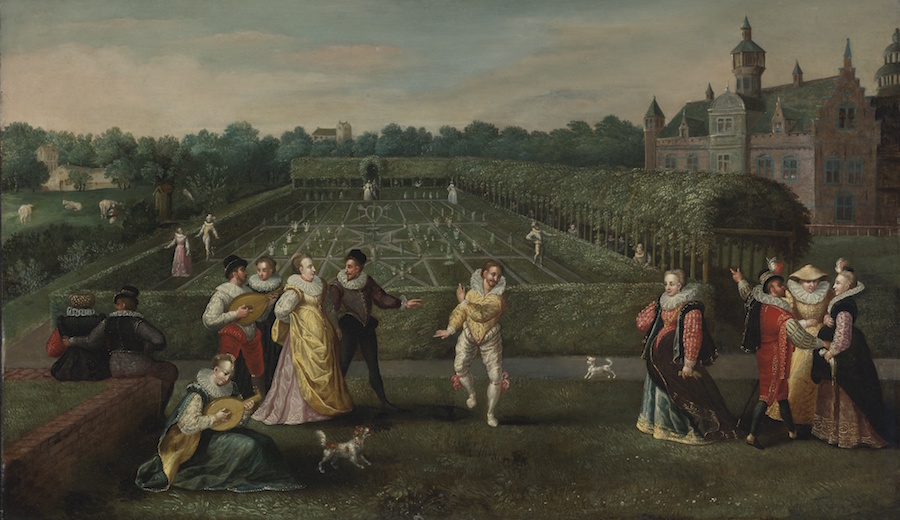
How courtiers can help us succeed
Perhaps one of the most inaccessible areas of study in American universities is the High Renaissance. From the contemplation of nude paintings to rich and dynamic texts admired by aesthetes and tourists alike, students often feel disconnected from the greater context of these works. For instance, Machiavelli’s The Prince is terribly underwhelming to those assaulted by the complex 24-hour news cycle that is now all too familiar. For us Millennials, it’s not at all shocking to believe, as Machiavelli once broke precedent by proposing, that statesman simply will not keep promises like normal people do. But of all the esoteric institutions within the period, it would seem that the most unrelatable is that of the court, which was once so integral to Renaissance life. But anyone who takes the time to read Robert Greene’s The 48 Laws of Power will become intimate with it’s history and elegant machinations. However, Greene’s attempt to illustrate the opulence of courtly lives and how they weaved their calculated gestures and actions into an art form for the purpose of overtaking their fellow courtier’s opponents — and to gain favor from those above them — fails to interest anyone but the most ambitious of historians and networkers.
Even more remote in time period and prose, though, is Baldassare Castiglione’s The Book of the Courtier. Just hearing the very first sentence of the work — “The book written at the instance of Alfonso Ariosto and in dialogue form, in order to record certain discussions held at the court of Urbino” — is enough to make the eyes of readers our age glaze over. But there is more value in this book, both in terms of aesthetics and practical utility, than may first appear.
The work apparently claims to recall four successive discussions in the evening among some courtiers who are beholden to Guidobaldo da Montefeltre, the lord and master of 16th century Urbino. The book discusses cerebral challenges faced in Italy that are difficult to relate to, which include proper ways to speak Italian and why various forms of art are better than others. There’s even a maudlin and somewhat absurd assertion made about the power of love, which is so over-the-top that one can hardly imagine anyone saying it other than some overly-clingy high school romantic partner.
Despite all of these seemingly banal and arcane discussions, the text is actually not at all about simply being a dandyish man or understanding the particular merits of sculpture. (This, at least to me, is incredibly refreshing, as the surface topics discussed are incredibly boring). It would seem that the true goal of the book is to educate Renaissance nobles in perfecting their roles within the European courts. Castiligone even goes so far as to use his characters as a mouthpiece of what sports one should play, naming ‘…running, leaping, swimming and wrestling…an accomplished [horse]’ and that one must ‘…be a good dancer.’ He names everything from the sort of literature one should know to why oratory is an important skill to have.
Not only must these noblemen learn a staggeringly large list of skills and sports, but they must work so hard at them as to make it seem casual and easy. Or, as Castiligone puts it, “…[the courtier] must put every effort…into outstripping others…so that he may be…recognized as [above the rest].” But most important of all is how the courtier should conduct themselves in their performance. Through “sprezzatura” (literally translated from Italian as “effortless grace”), they must hide all their hard work and dedication so that it seems as easy as breathing.
The reason for all of this obsessive and severe professional preening and skill-building is so that he may “properly” advise his ruler and gain their favor. Supposedly, the courtier is ‘the sharpening stone’ and the prince ‘the blade’ — and it’s the former’s job to keep the latter sharp and righteous.
But there is a much darker, colder aspect to the work than simply how to love well and how to be moral. The author says, using one of his characters as a mouthpiece, “There is an adage which says that when our enemy is in the water up to his waist, we must offer him our hand and rescue him from peril; but when he is up to his chin, we must put our foot on his head and drown him forthwith.” That is an incredibly alarming piece of advice, and certainly does not sound “moral” in any sense of the word. But it may be difficult to see why all of this is pertinent to any of us. We are not princes, princesses, kings or queens; we are regular students, who hopefully will get a good job after graduation. So why worry about any of this at all?
It’s because it takes great pains to discuss the primary force within politics, and the professional world, which is power. The virtue of how to properly acquire power and how to maintain it — essential in any office, classroom or home — gives the practitioner an edge in any social environment one can imagine. And despite the lofty subjects discussed by the various characters in The Book of the Courtier, the banter and intimate conversations could, with updated vernacular, easily be discussed by any of us. While we should never, ever “put our foot on [someone’s head],” it is useful to remember that not everyone is what their appearance may suggest, and by reading this book, one adds that much more knowledge needed to succeed in the world, regardless of the pursuit.
You can reach RYAN DOWNER at rmdowner@ucdavis.edu.



